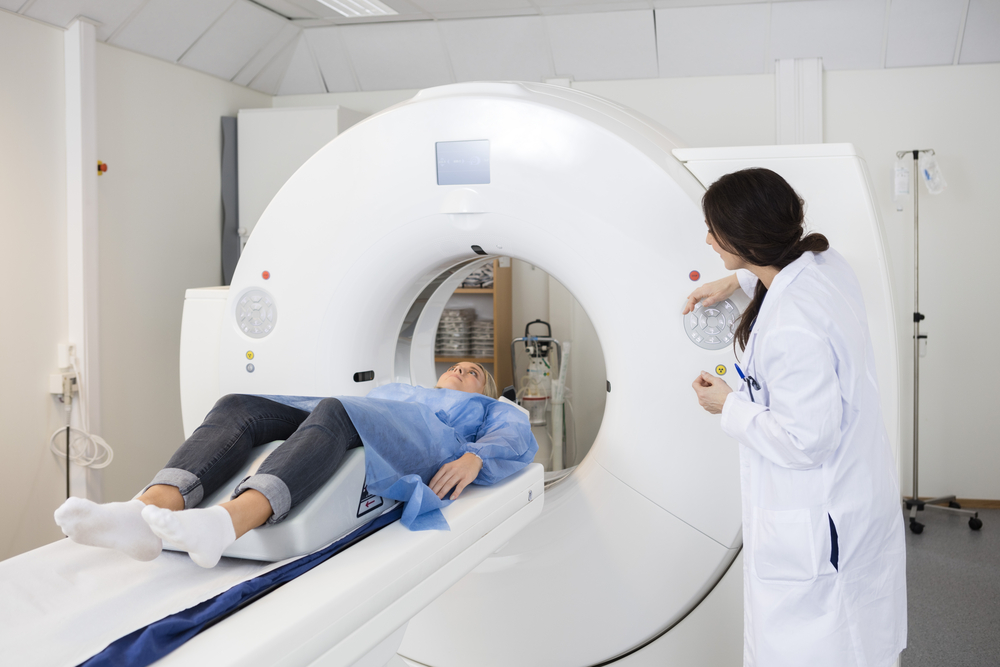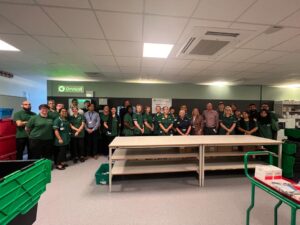Barts Health NHS Trust and its partner organisation, Transformation Partners in Health and Care, have released a toolkit detailing their pioneering work embedding social prescribing in secondary care and specialist acute pathways. The toolkit aims to help providers address unmet social needs, improve patient outcomes and reduce demand on acute services, shaping a holistic, prevention-focused model for the future NHS.
Social prescribing attempts to address the social determinants of health. These are the non-medical factors influencing 84 per cent of a person’s total health, with clinical care impacting the remainder. Social determinants of heath include income security and employment, education, housing and food insecurity, or social isolation.
Introduced in England in 2018, it typically involves signposting or referrals to appropriate services, but can also include emotional and mental health support for people experiencing social isolation or low-level mental health issues. Social prescribing is a holistic, person-centred and preventative approach and as such, is a key enabler of the government’s efforts to shift more care into the community and bolster prevention initiatives.
Emerging evidence suggests that social prescribing is an effective, yet low-cost, preventative intervention. However, its implementation has been more frequent in primary and community care, compared to secondary care. In 2023, Barts Health NHS Trust (Barts Health), one of Europe’s largest acute healthcare providers, started implementing social prescribing across multiple pathways, using different integration models to support a whole system approach to prevention and personalised care.
These services, delivered by social prescribers in collaboration with clinical and wider multi-disciplinary teams, support residents with their social needs while aiming to reduce demand on high-pressure services, including cardiovascular (CVD), renal, emergency care, and children and young people’s (CYP) services.
Encouraged by positive outcome data, the Trust and its partner organisation, Transformation Partners in Health and Care (TPHC), have developed a toolkit to help secondary care services embed social prescribing, public health and other community-led prevention initiatives within their specialties and pathways. The toolkit serves as a practical guide and checklist for secondary care providers looking to implement social prescribing and explore integrated, whole-system approaches to prevention.
Addressing unmet needs
While NHS England has established a standard model for embedding social prescribing, this has primarily focused on integration within primary care. In 2023, Barts Hospital’s Endovascular Team, led by Vascular Surgeon Dr Tara Mastracci, identified a high prevalence of unmet social need among patients in the hospital’s cardiovascular pathway – a well-evidenced correlation. Given that CVD disproportionately affects socially deprived populations, Dr Mastracci theorised that integrating social prescribing could benefit those at highest risk, simultaneously alleviating pressure on the pathway and improving patient outcomes.
A key data point supporting the use of social prescribing in secondary care was the gender split between typical users of social prescribing services and those presenting with acute cardiovascular issues. While 84 per cent of patients within cardiovascular pathways were men, 60 per cent of social prescribing users were women. Research has shown that women consult primary care services 32 per cent more frequently than men, suggesting that secondary care could play a central role in engaging men, who might otherwise remain underserved by traditional social prescribing models.
“Overall, we have found that we encounter a different group of patients compared with those who access social prescribing in primary care.”
Dr Tara Mastracci, Endovascular Lead for Complex Aortic Surgery, Barts Health
This reinforced Dr Mastracci’s belief in the merit of social prescribing within secondary care – clearly, more effort was needed to engage men, particularly for CVD patients who could benefit from greater social support.
Building a collaborative approach
Several specialties within the Trust had also identified unmet social needs as a key driver of service demand, and had begun implementing social prescribing programmes within their pathways. However, these initiatives were siloed, staff-led and reliant on temporary funding or fixed grants. To enhance collaboration and sustainability, Dr Mastracci established a multidisciplinary network of staff across primary and secondary care to drive a more integrated and formalised approach.
Finding limited guidance on implementing social prescribing within secondary care, Dr Mastracci’s CVD team set out to develop a replicable model for implementing it as part of secondary care pathways. Keen to apply the same rigorous standards as with a medical intervention, the team partnered with health economists at the University of East London. They incorporated EQ-5D instruments and QALY (quality-adjusted life years) metrics to evaluate the potential impact of social prescribing on both patients and the wider health and care system.
Recognising the need for greater institutional knowledge and community expertise, the team also partnered with the Bromley by Bow Centre (now Bromley by Bow Health), a leading VCSFE (Voluntary, Community, Social, and Faith Enterprise) community health organisation. This collaboration led to the embedding of a social prescriber within the hospital’s heart attack pathway, screening patients entering the pathway for financial or other social needs.
Implementation and outcomes
Once identified, social prescribers provided patients with six to eight support sessions, connecting them to local services and community groups tailored to their specific social needs. Beyond financial deprivation, patients received support for needs including housing, talking therapies, and healthy lifestyle support such as smoking and alcohol cessation, or physical activity and weight management – all of which play key roles in determining a person’s risk of developing CVD-related conditions.
The social prescribers were drawn from diverse backgrounds and communities, to work in collaboration with clinicians and consultants from secondary care, patient advocate groups, VSCFE organisations and others. This multidisciplinary approach facilitated a holistic and patient-centred approach. The experiences and lessons from creating the CVD social prescribing pathway were later used to inform other specialties as they implemented similar services within their pathways.
“We believe strongly in the importance of ‘place’ and thus many of our social prescribers meet patients in the community where they live to engage and provide support.”
Dr Tara Mastracci, Endovascular Lead for Complex Aortic Surgery, Barts Health
Dr Mastracci acknowledges that it will take years to fully assess the impact of Barts Health’s social prescribing programmes. “We know these target groups are admitted at higher rates than their peers,” Dr Mastracci told ICJ, “but it will take years to evaluate the long-term effects.”
Despite this, early results have been promising, notably within children and young people’s (CYP) diabetes services. Led by Dr Myuri Moorthy, Diabetes Consultant and Clinical Lead for Young Adult Diabetes (YAD) at Barts Health, clinicians in the pathway had noticed a concerning increase in non-adherence to self-management protocols, often linked to concurrent financial and psychosocial issues. The service also saw high numbers of patients not attending appointments (DNAs), largely due to distress, burnout, and the intense mental health toll associated with diabetes.
Poor diabetes self-management is well known to increase the likelihood of complications. This prompted the diabetes team to adopt a co-designed and personalised model, including a multi-disciplinary team of social prescribers, youth workers and a psychologist. The aim of the YAD Social Prescribing Service was to improve patient engagement, reduce DNAs and maximise the impact of each clinical appointment.
Together with service users, the team co-developed a series of interventions, including monthly peer support meetings, a WhatsApp group and a ‘walk and talk’ group, securing funding from NHSE for two and a half years. During this time, the team successfully:
- Reduced the DNA rate across the Trust from 39 per cent to 12.5 per cent
- Cut diabetes-related hospital admissions of CYP by 36 per cent across all Barts sites
- Generated financial savings of an estimated £62,500 per year across the Trust
More outcomes from the prevention initiatives across Barts Health, including economic and demand savings, stronger integrated community networks and improved outcomes and patient experience, can be found on pages 26-30 of the toolkit.
Gaining leadership buy-in
As with many prevention-based interventions, the impact of social prescribing on health and care systems can take years to fully assess. In its paper on integrated neighbourhood teams (within which social prescribers typically sit), The National Association of Primary Care suggests that “savings will be non-cash releasing, but this is not as issue as what is required is capacity and health improvement.” However, this long-term approach does not easily align with NHS funding cycles, which typically require demonstrable return on investment within 12 months.
Currently, all of Barts Health’s social prescribing pathways are funded individually, on an ad hoc basis. The CVD project, for example, was initially funded by NHSE, but is now supported by Barts Charity. To move towards trust-wide funding, TPHC’s Secondary Care Project Manager, Mollie McCormick, emphasises the need to develop:
- Robust databases and coding frameworks to accurately track interventions and outcomes over time
- Qualitative data collection from patients benefiting from social prescribing, with an emphasis on reduced need for healthcare services and thus cost savings
Bridging the gap between identifying social needs that drive demand and demonstrating short-term cost savings remains a challenge. However, securing the backing and support of senior clinical leadership is critical in building the case for long-term investment.
For social prescribing initiatives to gain trust-wide funding in future, structural changes are needed to prioritise long-term prevention and strengthen outcomes-based commissioning. Different approaches could involve integrated care systems incentivising prevention by:
- Setting realistic and appropriate prevention targets for NHS trusts to influence commissioning decisions towards the implementation of personalised care and prevention initiatives
- Introducing penalties for avoidable readmissions
These targets could be assessed by monitoring readmission rates for specific condition cohorts or high-demand service areas, ensuring a measurable focus on prevention.
The toolkit: Embedding and Connecting Prevention in Specialist Pathways
Barts Health and TPHC have now published their toolkit, Embedding and Connecting Prevention in Specialist Pathways. Along with background information on the benefits of social prescribing and community-led prevention, the toolkit addresses some of the key systemic barriers that Barts Health encountered while implementing initiatives across various pathways and specialties.
Using case studies and the first-hand insights from patients, social prescribers and clinicians, the toolkit offers practical guidance for those looking to implement community-led prevention approaches, such as social prescribing, in secondary care. It also provides an overview of key Barts Health prevention networks and identifies the leaders driving this work across the Trust. The toolkit offers a valuable resource for anyone working in an acute setting wanting to embed social prescribing into their services or to prioritise the prevention of ill health in NHS Trusts across London and nationally.
Social prescribing: A key enabler of NHS prevention goals
Emerging evidence strongly supports social prescribing as a cost-effective intervention for tackling the wider determinants of health and addressing the often-overlapping health inequalities that contribute to high demand for NHS services.
Further, as the government seeks to move more care from hospitals to communities as part of its ‘three shifts’, initiatives like social prescribing will be increasingly vital. By reducing pressure on secondary care services and helping local systems meet their financial and operational goals, social prescribing plays a crucial role in shaping the future of preventative, person-centred and sustainable healthcare.
Special thanks to Dr Tara Mastracci, Endovascular Lead for Complex Aortic Surgery at Barts Health, and Mollie McCormick, Secondary Care Project Manager at Transformation Partners in Health and Care, for their time and input in developing this article.









